Recovering from
addiction isn’t easy, but there are some medications that can help. When combined with evidence-based therapy, certain medications can increase the effectiveness of treatment and decrease the chances of relapse.
The U.S. Food and Drug Administration (FDA) has approved several drugs to treat addiction to alcohol, tobacco and opioids. These medications ease withdrawal symptoms and cravings and reduce the chances of an overdose.
Medication-assisted treatment is not a replacement for behavioral therapy. The goal of MAT is to help patients get through detox and actively participate in
substance abuse treatment programs.
Madeleine Ludwig credits medication-assisted treatment with saving her life. She told DrugRehab.com that she wouldn’t have been able to recover from
heroin addiction without the help of Suboxone, a medication that eases cravings and withdrawal symptoms caused by opioids.
“The more that you get used to Suboxone, the more you feel like you are able to stabilize on your own,”
Ludwig said. “A lot of people say that medically-assisted treatment is not real recovery. I absolutely disagree. I would be dead right now if I didn’t receive medically-assisted treatment.”
Some medications must be distributed through
certified treatment centers, and others can be prescribed only by physicians who have received appropriate training
and certification.
Nanci Stockwell of The Recovery Village talks about the advantages of using medications during treatment for addiction.
Many centers use medications during treatment to alleviate withdrawal side effects or symptoms of
co-occurring mental health disorders. Therapists might administer benzodiazepines such as
Valium or Ativan to ease withdrawal from alcohol, antidepressants to treat depression, Zofran for nausea or baclofen for muscle aches.
These drugs are not considered treatments for addiction because they treat side effects, not the addiction itself. They don’t reduce cravings or counteract the effects of addictive drugs.
There is no medication approved to treat a
marijuana addiction or addiction to stimulants such as cocaine or methamphetamine. However, the National Institute on Drug Abuse (NIDA) has funded several clinical trials to investigate potential treatment options for a range of addictions, and many have had promising results.
Medications Used to Treat Opioid Addiction
The drugs therapists use to treat opioid addiction have been around for decades, but most have become widely accessible only recently. Lawmakers have expanded access to the drugs in the wake of the ongoing opioid epidemic, and easier-to-use versions of the drugs have been developed during the last decade.
Marta Nelson of The Recovery Village describes how medical professionals at ARS treatment facilities use medication-assisted treatments for opioid addiction.
-
Methadone
Methadone is one of the most common medications used to treat opioid addiction. It decreases the symptoms of opioid withdrawal and inhibits the euphoric effects caused by abusing heroin and prescription opioids such as
oxycodone. When used as prescribed and under the supervision of a trained physician, methadone is an effective complement to treatment.
Only certified opioid treatment programs can prescribe methadone. It comes in pill, liquid and powder forms that patients consume once per day. Higher doses of methadone are more effective for helping many patients stay in treatment programs, according to research from the Substance Abuse and Mental Health Services Administration (SAMHSA).
SAMHSA also recommends patients remain on methadone treatment for at least 12 months. Many people require multiple years of treatment. When discontinuing methadone treatment, patients should slowly taper off of it under doctor supervision.
-
Buprenorphine
Buprenorphine decreases the potential for opioid abuse, reduces
withdrawal symptoms and cravings and decreases the risks of overdose. Because buprenorphine is a type of opioid, it has the potential to cause euphoria or slowed breathing. However, it has a lower potential for abuse than other opioids.
Buprenorphine is more accessible than methadone because certified physicians can prescribe it from the office, the hospital, health departments or correctional facilities.
The tablet Subutex is one of the most commonly prescribed forms of buprenorphine. The FDA has also approved products containing a combination of buprenorphine and naloxone to reduce the risk of abuse.
- Bunavail
- Suboxone
- Zubsolv
In 2016, the FDA approved an
implant called Probuphine, which administers small doses of buprenorphine. It’s designed for patients who are stable and have consumed other forms of buprenorphine for at least six months.
-
Naltrexone
Naltrexone can be used to treat opioid use disorder or alcohol use disorders. It blocks the euphoric and sedative effects of opioids and reduces cravings. It has no potential for abuse, but it should not be taken in combination with illicit drugs, alcohol or some
prescription medications.
Naltrexone comes in pill form and is sold under brand names such as ReVia and Depade, which patients take once per day. An injectable form called Vivitrol is administered once per month. Any medical physician may prescribe naltrexone, making it easily accessible.
Patients should abstain from opioid use for seven to 10 days before beginning naltrexone, according to SAMHSA. Patients on methadone should
completely detox from the drug before switching to naltrexone to prevent serious withdrawal symptoms.
-
Naloxone
Naloxone does not inhibit cravings or withdrawal symptoms, but it reverses the effects of an opioid overdose. It is often added to buprenorphine to decrease buprenorphine’s potential for abuse.
Treatment centers often prescribe naloxone to patients who are at a
high risk for overdose, such as those receiving high doses of opioid medications for chronic pain, individuals who have recently overdosed or patients who have been forced into treatment.
Doctors and pharmacists can teach caregivers and family members how to administer naloxone. It can be injected intravenously or inhaled through an intranasal spray. Naloxone effectively reverses an opioid overdose when the opioid has been used in combination with benzodiazepines or stimulants such as cocaine. However, it cannot reverse the effects of a stimulant or benzodiazepine overdose.
Medications Used to Treat Alcoholism
Physicians have several options for treating
alcohol addiction. Behavioral therapy can help alcoholics recognize and avoid high-risk situations, and referral to programs that provide peer support, such as Alcoholics Anonymous, can increase a person’s chance of recovery.
Therapists can also prescribe medications that decrease the appeal of alcohol. Studies show
disulfiram (Antabuse), acamprosate (Campral) and naltrexone (Vivitrol) help most people abstain from alcohol.
-
Disulfiram
Disulfiram causes unpleasant side effects such as sweating, nausea, headache, vomiting and chest pain when patients consume alcohol. The severity of the effects differs among patients, and is correlated with the amount of alcohol consumed.
Patients should not take disulfiram until they have abstained from alcohol for a minimum of 12 hours. The drug has been criticized because the deterring side effects take 10 to 30 minutes to begin, but multiple studies indicate it effectively reduces heavy drinking.
-
Acamprosate
Patients usually begin taking
acamprosate five days after their last drink, but it can be taken during detox and in combination with benzodiazepines — drugs commonly used to treat alcohol withdrawal symptoms. Acamprosate takes five to eight days to be fully effective. Research indicates it reduces the number of drinking days and the length of time before
relapse in recovering patients.
Acamprosate treatment is popular because it is safe for patients with liver problems and patients receiving opioid medications. It also does not cause adverse events if a patient relapses and begins drinking alcohol again.
-
Naltrexone
Naltrexone inhibits euphoric effects or feelings of intoxication when patients consume alcohol. Therapists use a treatment called the Sinclair Method, which reduces the positive reinforcement associated with drinking alcohol. During the treatment, patients on naltrexone consume alcohol under supervision. The method has proven to reduce chronic alcohol consumption in a majority of alcoholics.
Medications Used to Treat Nicotine Addiction
Several over-the-counter products and prescription medications are approved to treat
nicotine addiction. The products help relieve cravings and withdrawal symptoms associated with tobacco cessation. Over-the-counter products include nicotine-replacement patches, chewing gum and lozenges. The FDA recommends consumers avoid using over-the-counter products for long-term relief if possible.
-
Varenicline
Varenicline is more commonly known by its brand name Chantix. It’s a tablet that patients take once or twice daily to quit smoking. Varenicline works by inhibiting nicotine’s ability to produce pleasurable effects on the brain.
Patients should try to quit smoking between eight and 35 days after starting varenicline. It’s most effective when used in combination with education and counseling, and it may take one to two weeks before patients feel its effects. SAMHSA recommends patients take varenicline for 12 weeks even if they are able to quit smoking sooner.
Varenicline can affect the way some people react to alcohol, causing increased intoxication, aggressive behavior and
amnesia. The FDA has also received rare reports of seizures in patients who take varenicline. Health care providers should help patients weigh the risks and benefits before prescribing the drug.
-
Bupropion
Bupropion is marketed under the brand names Wellbutrin and Zyban. It’s an antidepressant that has also been effective at aiding in tobacco cessation. The drug comes in tablet form and is taken two to four times a day, depending on dose.
Products containing bupropion have caused adverse side effects. People taking Zyban have reported feeling agitated,
depressed and suicidal while taking the drug to quit smoking. Children, teens and young adults taking Wellbutrin have also reported suicidal thoughts. Treatment providers should determine if patients are at risk for serious side effects before prescribing bupropion.
Addiction Medications in Clinical Trials
Medications used to treat addiction must undergo multiple clinical trials to receive approval from the FDA. These studies investigate the effectiveness and safety of the drug in various populations.

Researchers are investigating numerous treatment options for a variety of addictions. The National Institute on Drug Abuse funds the majority of clinical trials for potential substance abuse medications.
Amphetamines to Treat Cocaine and Meth Addiction
Addiction experts have considered treating patients addicted to cocaine or methamphetamine with other stimulants such as amphetamine salts. The therapy is similar to methadone maintenance therapy, which treats opioid addiction with a safer opioid. However, stimulants are associated with adverse medical conditions such as heart attacks and strokes.
Recent studies indicate
amphetamines can effectively treat cocaine addiction, and NIDA continues to fund clinical trials using stimulants to treat methamphetamine or cocaine addiction.
Vaccines for Drug Addiction
Researchers have spent more than 40 years studying the possibility of a vaccine to treat various types of
drug addiction. A vaccine for drug addiction would not work like a traditional vaccine for a disease such as measles. Instead, it would block drugs from reaching the brain, inhibiting their effects.
Early clinical trials testing vaccines for nicotine, cocaine, PCP and methamphetamine addiction have been promising.
This type of vaccine would not reduce cravings and would require booster shots for long-term effectiveness. Early clinical trials testing vaccines for nicotine, cocaine, PCP and methamphetamine addiction have been promising.
However, not all vaccines have been successful. NIDA withdrew support for a potential nicotine vaccine in 2011 after it failed to produce strong results in a large clinical trial.
Other Clinical Trials for Drug Addiction Medications
Numerous clinical trials for drug addiction medications are underway. Some are in the early planning stages, while others are ongoing or recently completed.
- Gemfibrozil for tobacco addiction
- Gemfibrozil is approved to lower cholesterol. Researchers are investigating its effectiveness at aiding in tobacco cessation compared to placebo.
- Topiramate for cocaine addiction
- Topiramate is an anticonvulsant used to prevent seizures. Researchers are investigating its effectiveness in treating cocaine addition, its safety when used alongside methadone maintenance therapy and whether it helps with problems related to co-occurring alcohol abuse, tobacco use, anxiety or post-traumatic stress disorder.
- Modafinil for cocaine addiction
- Modafinil is approved to treat narcolepsy and sleep apnea. Using the drug in combination with cognitive behavioral therapy, researchers are studying its effectiveness at preventing relapse in individuals recovering from cocaine addiction. CBT is one of the most common therapies used to treat addiction.
- Naltrexone for methamphetamine addiction
- Naltrexone is commonly used to treat opioid and alcohol use disorders. Researchers are investigating its effectiveness in treating methamphetamine addiction and crystal meth addiction.
The future is promising for individuals recovering from addiction. More medications are available today to complement behavioral therapy in addiction treatment programs than ever before, and researchers are learning more about how medications can aid in the
recovery process.
Medical Disclaimer: DrugRehab.com aims to improve the quality of life for people struggling with a substance use or mental health disorder with fact-based content about the nature of behavioral health conditions, treatment options and their related outcomes. We publish material that is researched, cited, edited and reviewed by licensed medical professionals. The information we provide is not intended to be a substitute for professional medical advice, diagnosis or treatment. It should not be used in place of the advice of your physician or other qualified healthcare provider.
 Addiction
Addiction
 Treatment
Treatment
 Faith & Religion
Faith & Religion
 Active Recovery
Active Recovery
 Our Community
Our Community

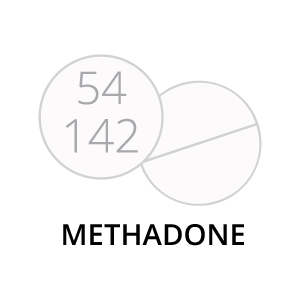
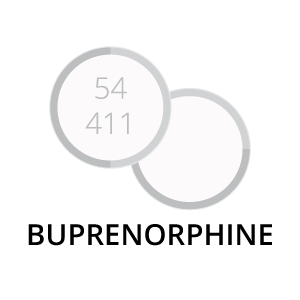
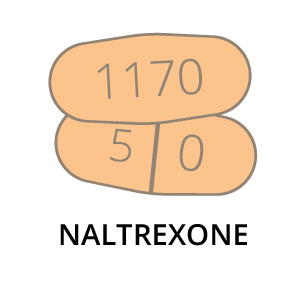
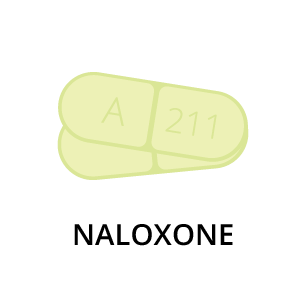
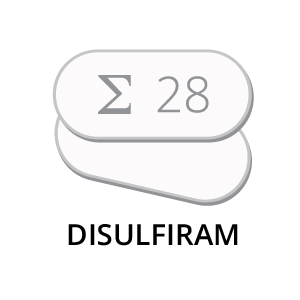
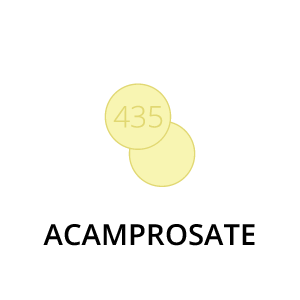
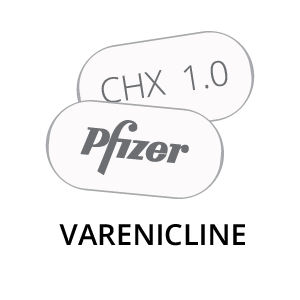
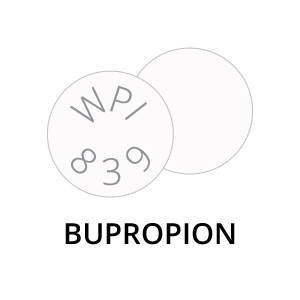
 Researchers are investigating numerous treatment options for a variety of addictions. The National Institute on Drug Abuse funds the majority of clinical trials for potential substance abuse medications.
Researchers are investigating numerous treatment options for a variety of addictions. The National Institute on Drug Abuse funds the majority of clinical trials for potential substance abuse medications.


